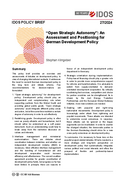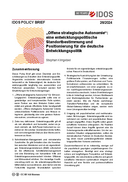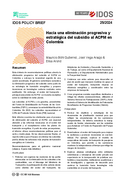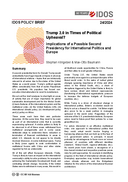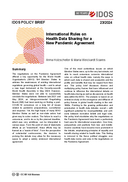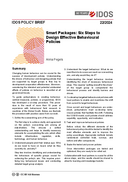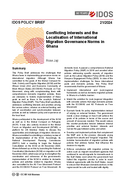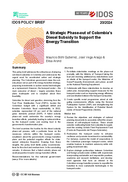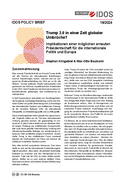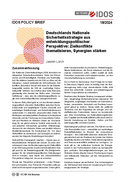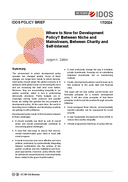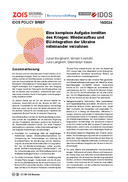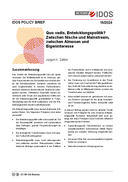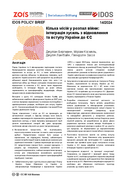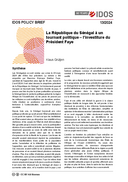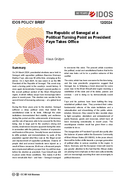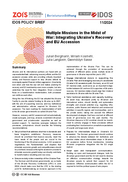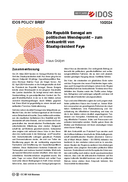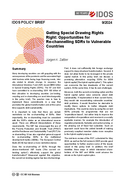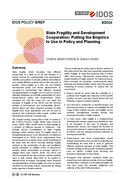Policy Brief
The Policy Brief is a new format that replaces the former series “Briefing Papers” and its German version “Analysen und Stellungnahmen”. Policy Briefs address questions of development policy and international relations. By including concise recommendations, the series is primarily aimed at policy makers, practitioners and representatives of the (professional) media industry. Besides, the series also addresses everyone interested in developmental issues. Depending on the envisaged target group Policy Briefs are translated in other languages.
All publications of the series have a CC-BY 4.0 licence and can be downloaded in full text on our website.
Current Policy Brief

“Open strategic autonomy”: an assessment and positioning for German development policy
Klingebiel, Stephan (27/2024)

„Offene strategische Autonomie“: eine entwicklungspolitische Standortbestimmung und Positionierung für die deutsche Entwicklungspolitik
Klingebiel, Stephan (26/2024)

Hacia una eliminación progresiva y estratégica del subsidio al ACPM en Colombia
Böhl Gutierrez, Mauricio / José Vega Araújo / Elisa Arond (25/2024)

Trump 2.0 in times of political upheaval? Implications of a possible second presidency for International politics and Europe
Klingebiel, Stephan / Max-Otto Baumann (24/2024)

